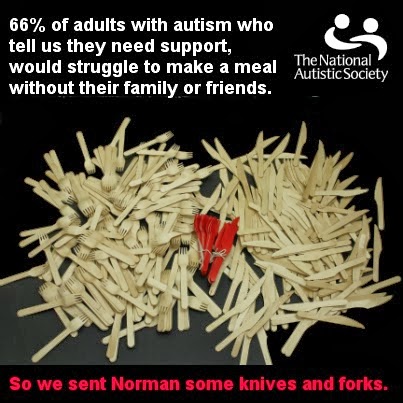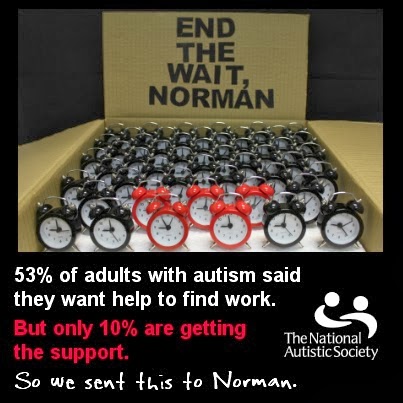We always love hearing from
you, whatever you’ve got to say. And the overwhelming majority of what you’ve
told us about Push For Action so far has been incredibly positive, which makes
us especially happy.
But, of course, we get less
positive feedback too. Sometimes people are angry with us – frustrated that we
haven’t been able to do more where they live. Occasionally people feel like we’ve
not represented their views as well as we could have. And often, people are
feel tired and frustrated with campaigning, and simply seem to be asking us: “What’s
the point?”
The below is a message sent
to me a couple of months ago in response to a request to support the Push for Action campaign:
“I would but it won’t work so I won’t do it. Honestly,
I would push that big red button 20 million times if I believed this could
really happen. No-one’s going to fund it, no-ones going to listen. We’ve been
trying to get people to listen [where I live] for 3 years. Nothing changes no
matter how flash you make your website look or how many people you convince to
press your red button. Sorry.”
And here’s an extract from another
more recent letter on a similar theme:
“As we both know, the Autism Act is a
pointless piece of paper and quite why the NAS celebrated when it came into law
I will never know. The act has no claws, there is no penalty for a local
authority who does not or is unwilling to set up services for Autistic adults.
There is no preventative action and I
doubt there ever will be. Clearly they would rather risk the costs of
sectioning someone rather than help them. So I despair when you ask me to push
for action, because there is very little point, they will not listen to me and
they cannot be made to anything.”
I suspect these
correspondents speak for many of you. Scratch that – I know they do,
because we talk to lots of you who feel the same: you feel like you’ve been screaming
into the abyss for weeks, months, years – and you don’t want to fight any more.
So in an attempt to answer
to more of you than just those who have taken the trouble to write in, here is
an extract from my response to the second writer I have quoted for those of you
who are perhaps feeling disillusioned. I know we'll never convince everyone to get involved, but I want to make it clear to you why we ask you to to begin with.
“Thank you for getting in touch with your thoughts, I
appreciate it. I disagree with a few of your points but I also entirely
understand and share your frustration.
I disagree with your point that the Autism Act is
pointless. It isn't perfect, but it does – for the first time – set out in law
that someone, both within the
Department of Health and at each local level, has to take responsibility for
improving the lot of adults with autism. That might not seem like much, but
because of that and the other duties set out in the statutory guidance that
came out of the Act, we are genuinely beginning to see some very good progress
in parts of the country – and levels of progress that we certainly would not
have seen without the Autism Act.
But – and this is a significant 'but' – we haven't
seen nearly enough of that progress. Too many local authority areas have
been able to get away with doing very little or almost nothing at all. Most of
those who are making steps forward are doing so too slowly and too patchily.
Times are tough financially, but that's no reason not to ensure they are
meeting the needs of a significant chunk of their local populations, particularly as there is now statutory guidance telling them to do so.
There is currently far too little preventative action
out there, I absolutely agree. But I hope and sincerely believe that the Autism Act –
backed by the Push for Action campaign and our army of campaigners – will
change that. I am a professional campaigner, and I do this job because I know
that it works. When people come together round a common issue, have a legitimate complaint and a clear pragmatic solution to resolve it, and make enough 'noise'
in the right way, it really can and does get results. It's rarely easy or quick – and of course it won't always work. But I'll tell you
this: the areas where we've seen real progress are almost always the areas
where there's a strong campaigning presence. And that's no coincidence.
It is absolutely your choice as to whether or not you
want to get involved, and as much as I'd love to have your support I
am not going to implore you to do something you don't want to do. But I do
firmly believe that the autism community working together is the only way of achieving real, lasting change across the
country. That's why we launched Push for Action – to give people something to
get behind, to work together on, to push for change in their communities.”
Tom Madders.
Head of Campaigns
 We gathered
everyday objects to represent the support people with autism have told us they
need. Although 53% of adults with autism said they want
help to find work, only 10% are getting the support. So this Monday, we assembled 50 alarm clocks – something most working people need – packaged them up in a
box and hand-delivered them to the Department of Health offices, 'FAO Norman Lamb'.
We gathered
everyday objects to represent the support people with autism have told us they
need. Although 53% of adults with autism said they want
help to find work, only 10% are getting the support. So this Monday, we assembled 50 alarm clocks – something most working people need – packaged them up in a
box and hand-delivered them to the Department of Health offices, 'FAO Norman Lamb'.




